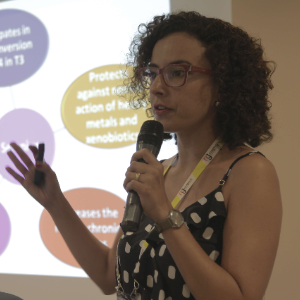Title : Selenium and Alzheimer’s disease: Facts and effects
Abstract:
Oxidative stress has a central role in the pathogenesis of neurodegeneration. Thus deficient status of antioxidants is associated with cognitive decline and risk of dementia. Here, we show the association between selenium status in two different populations (Australian and Brazilian) and cognition, and discuss the possible variables implicit in the search for selenium-based biomarkers in Alzheimer’s disease. Additionally, we present data regarding two independent pilot trials that used different selenium sources - Brazil nuts, a naturally high selenium food source, and sodium selenate - aiming to improve selenium status and cognition. Indeed, mild cognitively impaired elderly who received Brazil nuts for 6 months improved cognition performance measured by constructional praxis and verbal fluency tests. Moreover, Alzheimer’s disease patients treated with sodium selenate for 24 weeks presented higher selenium concentration in CSF, which was associated with better performance on MMSE. Our data shows the relevance of selenium as strategy to slow the progression of cognitive decline and the onset of dementia.
Audience take away:
- I will report strategies that can be used to reduce the risk for Alzheimer’s disease, which has increased prevalence worldwide
- The data I will present will foster future research on Alzheimer’s disease diagnosis and treatment
- This work reinforces selenium as strategy to modulate ferroptosis, the newly discovered cell death pathway involved in neurodegeneration.




